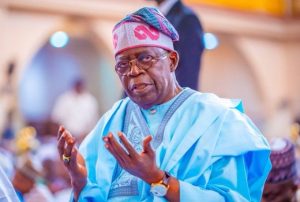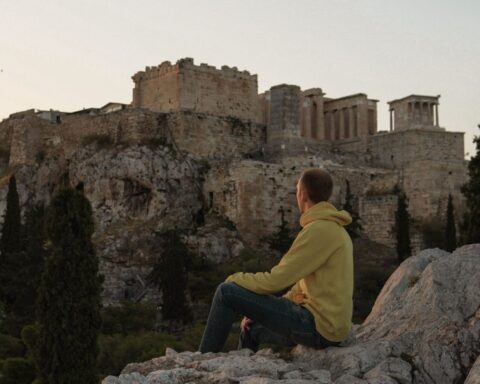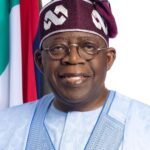By Emmanuel Chisom
The elders of my place caution that the sacrificial akara should not be given to an emèrè child to share. When you ask why, they respond that she will merely make her kindred spirits the sole beneficiaries. And when that happens, the elders further caution, the tragedy (ultimate death) which the sacrifice is designed to avert will eventually happen.
Having shared this traditional caution, I would like to turn to my own childhood experiences. Growing up in the hinterland can be fun. In my part of Yorubaland, we have special children called emèrè. They are mostly females. Emèrè are not abíkú, which the Igbo call ogbanje. The difference here is that while a typical abiku dies and returns to the same parents as many times as he or she can muster before he or she is overpowered, an emèrè remains a pain in the neck of her parents through frequent and indeterminable illnesses. The illnesses don’t kill her but merely drain the resources of her parents.
Powerful children, Yoruba metaphysics says that emèrè are husbands of witches (emèrè ni oko ajé) because they are stronger and more ‘wicked’! Emèrè children are treated specially, most times, with utmost attention. They are fragile in looks and conduct. They are also particularly spoilt in the real sense of the Yoruba concept of àkébajé. Parents offer sacrifices to appease them to stay here on earth. Our belief is that emèrè children have their kindred spirits waiting for them by the gates of heaven. If an emèrè eventually dies, it is believed that a replacement might not come easily. Everything is therefore done to prevent such a tragic end.
So, to keep them alive with their suffering parents, sacrifices, known in the local dialect as osè, are offered. The sacrificial items, mostly small edibles ranging from groundnuts to sugarcane, ekuru (white moi moi) to akara, are prepared and offered to children who are in the same age bracket as the emèrè. After the preliminary prayers, the emèrè is asked to share the items with the ever-joyous children who sing traditional praise chants for her.
But there is a strange practice in the sharing of the sacrificial edibles. While all the other items are given to the ‘celebrant’ to share, the akara is never given to her. The explanation for this exception is illustrated in the saying that nobody gives the sacrificial akara for the emèrè to share; otherwise, she will simply give it to her kindred spirits to pave the way for her journey to the great beyond (A kìí fún emèrè ní àkàrà osè pín kí ò má baà pín fún egbé è láti pa ònà orun mó).
In our elementary Government classes from Form Three to Form Five of those days, the then Miss Folake Afolabi, and Messrs Abayomi Oduntan and Vice Principal Ojo repeatedly listed what they called “The Presidential Powers of an Executive President.” We were taught that an Executive President is both the Head of State and Head of Government, a fountain of honour; he declares a state of emergency; assents to and vetoes bills; declares wars and signs treaties; and has the prerogative of mercy, among almost twenty of such powers.
On the prerogative of mercy, we were told that an Executive President has the right to pardon a convict on death row. And once pardoned, such a beneficiary can no longer be held in relation to the offence(s) that led to his or her conviction.
President Bola Ahmed Tinubu exercised his prerogative of mercy power last week and set free 147 ex-convicts. The controversy that greeted that act is one that will not abate in a hurry. In all the comments for and against the action by the President, everyone, including the President’s political enemies, agreed that Tinubu’s action was, and is, within the ambit of the law. The Constitution allows him to extend pardon to any manner of convicts, and his action cannot be subjected to any judicial review. Good enough.
However, the grey area in the review of the President’s exercise of his prerogative of mercy has to do with the morality that informed the choices of some of the ex-convicts President Tinubu set free. Majority of the people who frowned at the list of the beneficiaries of the President’s kindness argued, and very correctly too, that the huge percentage the President allocated to convicts of drug-related offences speaks volumes of the President’s disposition to the fight against narcotics in the nation.
The argument here is that of the 147 convicts President Tinubu pardoned, 60 of them are those who were convicted and sentenced to various terms of imprisonment for dealing in hard drugs. A simple arithmetic puts that figure at 40.8 percent of the total number of 147 beneficiaries! Many, justifiably, concluded that if not for anything, Mr. President should have exercised discretion in freeing those drug lords.
Reviewing the arguments for and against this latest action of President Tinubu, I drew inspiration from the words of wisdom by our elders as quoted above—that one should not give the sacrificial akara osè to an emèrè to share. Of the “Executive Powers of an Executive President” those good teachers of yore taught us, the one that looks more like an akara osè (sacrificial akara) is the prerogative of mercy. In the hands of an emèrè president, who causes the people pain and agony, draining their meagre resources by the minute, that power can be easily abused. The morality of 60 drug offenders benefiting from the list of 147 pardoned ex-convicts flies in the face of decency!
Colleen Shogan, a former Senior Executive at the Library of Congress, U.S. Senate, on December 2, 2022, wrote The History of the Pardon Power: Executive Unilateralism in the Constitution. In the article, which was published by The White House Historical Association under the Rubenstein Center Scholarship, she said that when the exercise of the clemency power is not used discretionally, the one who wields the power suffers public opprobrium. Hear her:
“Gerald Ford’s 1974 pardon of Richard Nixon was arguably the most famous exercise of executive clemency in American history. After Ford’s pardon of Nixon, his approval rating fell over twenty points in the ensuing days. Many political analysts conclude that Ford never recovered from the pardon, thus severely damaging his chances to win election to the White House in 1976.” She added that Ford’s explanation—that he granted the pardon as an act of mercy to Nixon and for the broader purpose of restoring domestic tranquillity in the nation after Watergate—could not salvage the situation.
Imo Udofa, Professor of Law, University of Uyo, reinforces Shogan’s arguments. In his The Abuse of Presidential Power of Pardon and the Need for Restraints, published in the Beijing Law Review, Vol. 19, No. 2, June 2018, Udofa argues that “The power of pardon is virtually unfettered and unchecked by formal constraints in most jurisdictions, thereby rendering it susceptible to abuse.”
Udofa further states that “The recent exercise of presidential power of pardon by the current American President, Donald Trump, by granting pardon to Joe Arpaio (a former sheriff of Maricopa County, Arizona, who was found guilty in July 2017 of criminal contempt for defying a judge’s order against prolonging traffic patrols targeting immigrants) has rekindled the discussion on the uses and abuses of the pardon power…. It has been argued that Arpaio should have been allowed to serve his punishment, and the presidential pardon amounted to a presidential endorsement of the criminal contempt for which Arpaio was punished.”
In Nigeria, the teacher of law says the case of President Goodluck Ebele Jonathan’s pardon of Chief D.S.P. Alamieyeseigha, former Governor of Bayelsa State, convicted of several corruption charges, remains the most controversial exercise of presidential pardon power in the country.
He posits further that while “The power to grant pardon is of ancient origin and recognised today in almost every nation…. However, in recent times, the pardon power has been abused as political and other extraneous factors tend to determine its application. It has also been seen as capricious and inaccessible by ordinary people. The usefulness of the power has seriously been dented by lack of control and checks in most jurisdictions, including Nigeria.”
“Sacred” as prerogative of mercy is, Udofa says its application should be alongside “checks and guiding principles.” I add here: with utmost discretion!
The U.S., for instance, punishes tax evasion and drug-related offences severely. On drugs, the U.S. would go to any length to get the culprit to book. That was why, against international conventions, the administration of President George H. W. Bush ordered the invasion of Panama in an operation code-named Operation Just Cause and had President Manuel Antonio Noriega Moreno (February 11, 1934 – May 29, 2017), simply Noriega, kidnapped on January 3, 1990, on the accusation of dealing in hard drugs.



























